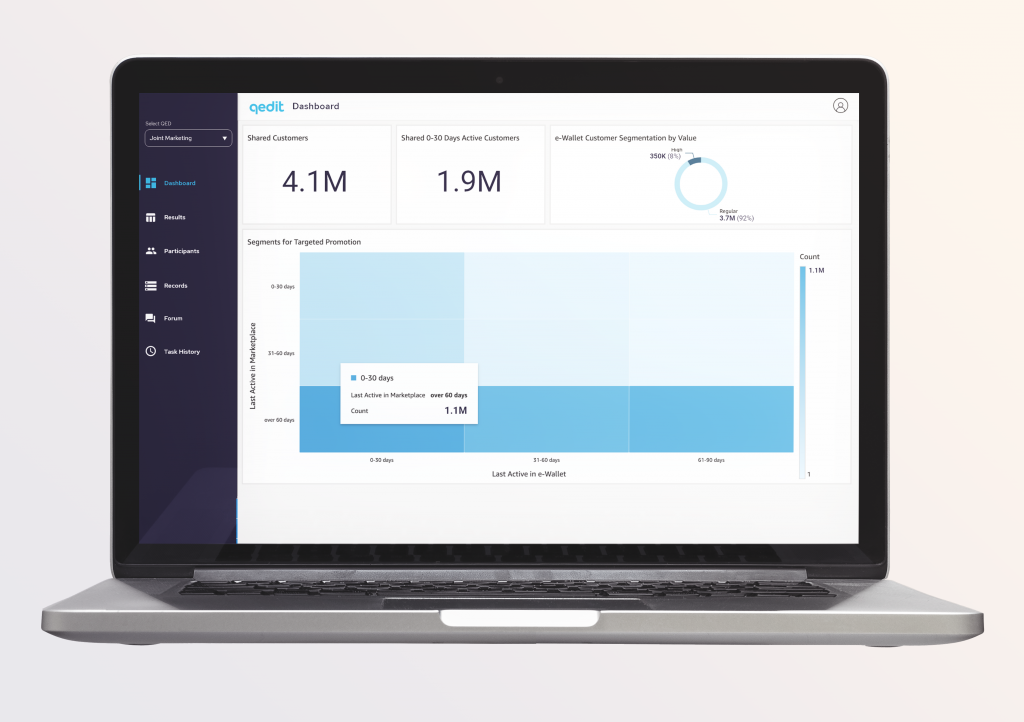Collaborate with Confidence: Top Tips for Evaluating a Data Collaboration Platform
Companies operating in today's highly competitive global and online markets are increasingly compelled to find innovative ways to leverage their business relationships for monetary and strategic gain. To achieve success, enterprises now need to continuously enrich siloed data with actionable, domain-specific, and up-to-date information from trusted partners in their network.
Incentives and Barriers to Data Collaboration
In the business world, data collaborations can serve as powerful catalysts for commercial growth. For example, they can help companies find new revenue streams and data monetization opportunities. They can also provide key decision-makers with a better understanding of the scale and contours of their mutually addressable market, or shed additional light on the implications of a more substantive future collaboration.
However, safely tapping into another company's data to increase market share is no trivial matter, particularly with today's restrictive data privacy regulations. Now more than ever, businesses need secure data collaboration tools to help them maintain their competitive edge and mitigate the risk of data leaks.
Evaluation Criteria
Companies that wish to glean high-value insights from partners or other members of their ecosystem have a lot to think about when assessing a data collaboration platform. Let's take a closer look at some key considerations and questions that prospective collaborators must keep in mind:
1. Data ownership
Ceding control over how data is used in a collaborative environment can have severe financial and reputational consequences for enterprises. Facebook, for example, is still reeling from the damage incurred for its role in the Cambridge Analytica election scandal. When evaluating the credentials of a data collaboration platform, companies must have absolute clarity around what mechanisms and governance protocols are in place to ensure the rules and scope of the collaboration are enforced. Rigorous assessment of the technologies underpinning the platform is also recommended.
2. Data security
The risks associated with data leaks and hacks can be enough to dissuade enterprises from green-lighting revenue-generating data collaborations. The Yahoo! data breach, which compromised more than hundreds of millions of user accounts, serves as just one reminder of how costly and damaging breaches of this nature can be. In any collaboration, especially where data is handled by a third party, the attack surface is considerably wider – so it is essential that enterprises clearly understand how the platform mitigates the risk of data leaks. Additionally, it is important to consider whether or not third parties have access to raw data, and if data will be stored or processed in the cloud during collaborations.
3. Monetization timeline
Dynamic businesses that are keen to engage in collaborations must also consider the amount of time it will take before a project begins delivering tangible results. This is particularly true for collaborations that involve datasets from a wide network of alliance partners or members of a consortium. The time cost associated with launching a collaboration and onboarding new partners and data into the system should be tallied before a determination is made. Enterprises also must ascertain if they will need to allocate development resources to facilitate integrations with new data sources.
4. Peripheral costs
System administrators responsible for overseeing the implementation of a collaboration also need to take into account ongoing outlier costs. They need to know if the platform is a SaaS solution or if it requires server deployment and maintenance. Before initiating any collaboration, companies must also consider if external BI solutions are required to overlay new insights on top of first-party data or to condense results for decision-makers, or if they will need specialized data scientists for onboarding and analyzing data.
5. Scalability
Understanding the potential scope of activity with regards to data collaboration will help to inform the decision-making process. Firstly, clarify whether the platform has scalability capabilities, or if it is purely designed for a one-off collaboration. Enterprises with large, routinely updated data sets based on real-time information should also take heed of system performance. They must consider if the platform can process large volumes of data in a reasonable timeframe, and if data can be analyzed on an automated, rolling basis at regular intervals.
QEDIT: Secure, Practical and Cost-Effective Data Collaboration
With QEDIT, data collaboration has never been easier or safer. Our cutting-edge enterprise-ready platform empowers companies to seamlessly leverage partner data in a regulatory-compliant setting. Click here to see how QEDIT works.

Trusted by industry leaders and government, QEDIT employs robust Privacy-Enhancing Technology that facilitates the sharing of insights derived from confidential datasets, without ever exposing the underlying data itself. You set the rules to govern your collaboration, and we guarantee the protection of confidential information. We ensure that raw data never leaves company servers, nor is it shared with QEDIT or any of your partners.
QEDIT can be seamlessly deployed with any database management system. It is capable of rapidly onboarding and processing securely hashed datasets, using advanced cryptographic protocols to deliver fresh and timely insights. Our customizable dashboard helps you swiftly assess and visualize insights in a digestible, easy-to-understand format. It is the optimal platform for savvy companies that are keen to unlock new value through unprecedented, privacy-enabled access to 2nd party data assets.
To learn more about how your business can benefit from secure data collaboration or to schedule a free demo or consultation, contact us.